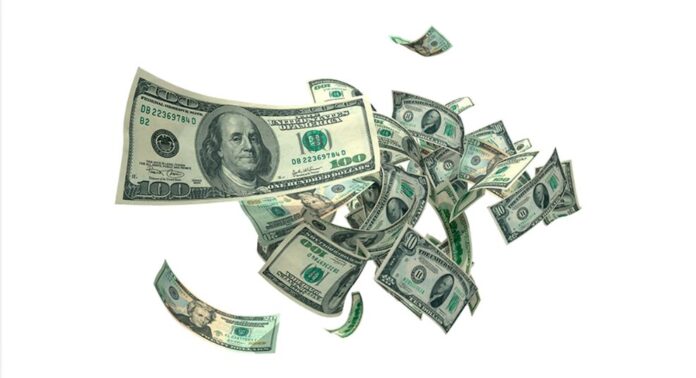In a bid to curb the outflow of dollars and other foreign currencies to neighboring Iran and Afghanistan, law enforcement agencies (LEAs) have initiated a country-wide crackdown on currency smugglers, The News reported, citing the Exchange Companies Association of Pakistan (ECAP).
As per the news report, Malik Muhammad Bostan, Chairperson of ECAP, explained that the recent surge in the exchange rate was driven by the resurgence of currency smuggling syndicates. These groups, he said, were smuggling foreign currencies across borders, exploiting the demand for dollars in Pakistan.
Bostan detailed how, in major cities, agents working for these smugglers approach customers outside legal exchange companies, offering them more favorable rates. They then transport these individuals to clandestine offices where foreign currencies are purchased at black-market rates. This practice not only undermines legal exchange channels but also contributes to a daily reduction in the dollar supply, exacerbating the currency crisis.
Following these revelations, LEAs were instructed to take decisive action against the smugglers and arrest those involved. As a result, the smuggling network reportedly went underground by Wednesday.
The Federal Investigation Agency (FIA) has also carried out a number of raids based on intelligence gathered, which has led to a drop in the market dollar rate. As a result, the rupee strengthened, rising to 288 per dollar in the open market from 288.6 previously, and improving to 284.8 from 285 in the interbank market.
Bostan has predicted that if the crackdown continues, the rupee could further appreciate, possibly reaching 270 or even 250 per dollar.
Despite the recent improvements, the local currency had been under considerable pressure over the past month, even as Pakistan reported a current account surplus, an increase in foreign exchange reserves, and strong remittances.
Bostan noted that the State Bank of Pakistan (SBP) had increased reserves by purchasing $9 billion from the interbank market over the last nine months. However, the central bank has now ceased these purchases, signaling that the dollar rate may not rise further and could potentially decrease.
Bostan also highlighted new tax regulations by the Federal Board of Revenue (FBR), which impose a tax on cash purchases exceeding Rs200,000. This, he noted, has driven many non-filers to purchase and hoard foreign currencies from the black market to avoid detection.
He urged the government to consider tax exemptions for foreign currency purchases up to $2,000, a policy currently allowed by the SBP. This, he argued, could reduce demand for dollars and help bring down the exchange rate.




